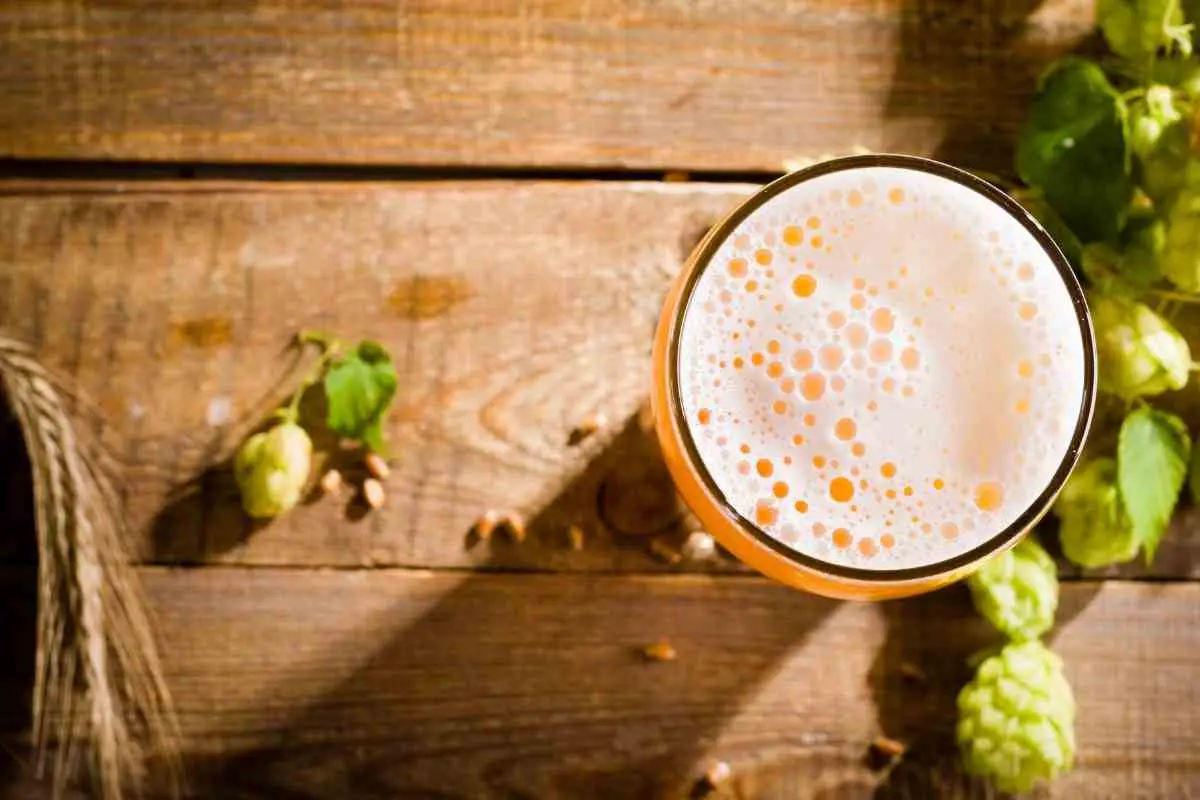Whether it’s playing specific types of music, using different color light bulbs, or even talking to your plants, gardeners will try anything to get their plants to grow bigger and better.
So, it’s no surprise that some gardeners have resorted to feeding their plants beer.
Is beer good for plants? Not really. Beer contains nutrients that can benefit plants, such as nitrogen, phosphorus, and potassium. However, the levels of these nutrients are very low and are not worth the effort or cost of using beer as a fertilizer.
That being said, you can use beer in some ways to benefit your garden or plants.
Let’s look at beer and how it can be used (or not used) to help your plants grow.
What’s in Beer: At a Glance
Before we dive into whether the beer is good for plants, it’s important to understand what beer is made of and the role of those ingredients.
Beer is primarily made up of water, barley, hops, and yeast. Water makes up most beer, usually around 90-95%.
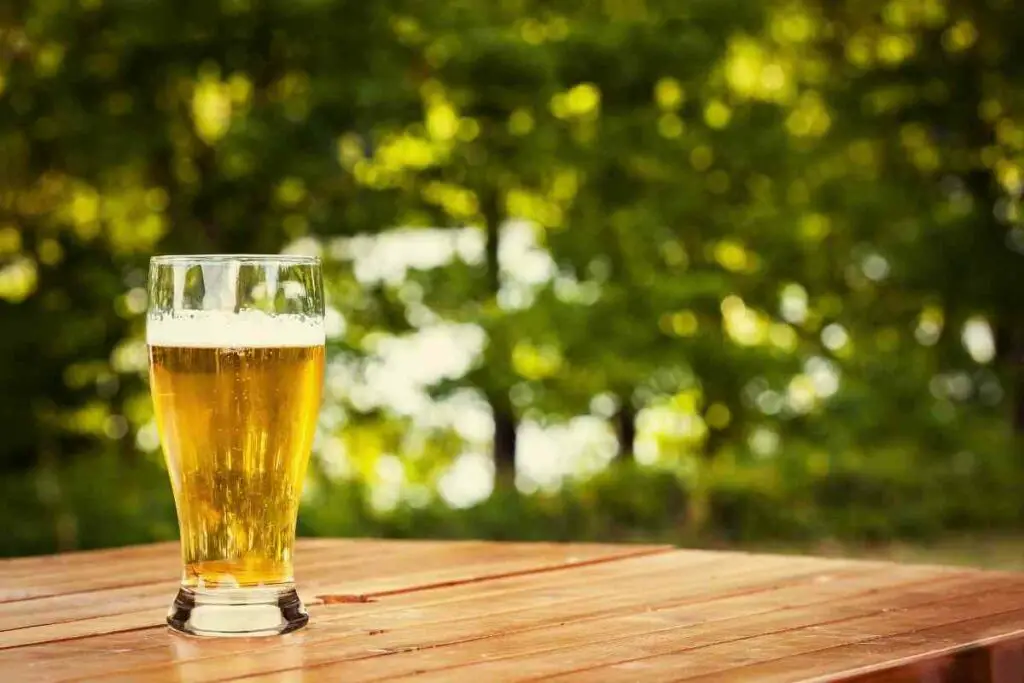
Barley (a grain used in brewing beer) is a good source of:
- carbohydrates
- proteins
- vitamins
- minerals
Hops are the flowers of a hop plant and are used to add flavor, aroma, and bitterness to beer.
Yeast is used in the brewing process to convert sugars into alcohol.
Some varieties of beer also contain other ingredients, such as fruits, spices, or herbs.
These additional ingredients can change beer’s flavor, aroma, and color.
Why You Shouldn’t Feed Your Plants Beer
Now that we know what beer is made of, let’s consider why you shouldn’t use it to fertilize your plants.
1. The Presence of Alcohol
The main reason why you shouldn’t use beer to fertilize your plants is the presence of alcohol.
When used in moderation, alcohol can have some benefits for plants.
However, too much alcohol can be damaging and even lethal to plants.
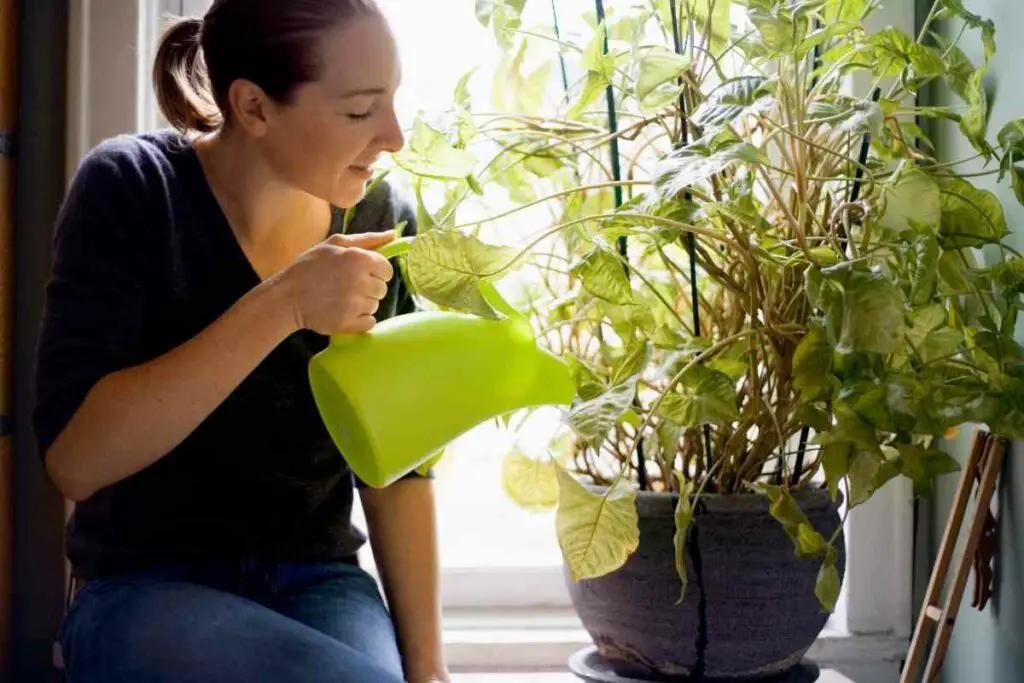
The alcohol content of beer can vary depending on the type of beer and the brewing process.
For Example – Light beers usually have an alcoholic content of 3-6%, whereas strong beers can have a concentration of up to 14%.
Regardless of the type of beer, it’s best to err on the side of caution and not use it as a fertilizer, as the alcohol content can stunt growth or kill your plants.
2. The Lack of Nutrients
As we mentioned earlier, beer contains some nutrients that can benefit plants.
However, the levels of these nutrients are very low and are not worth the effort or cost of using beer as a fertilizer.
It’s important to note that plants need many different types of nutrients to grow and thrive.
The three main nutrients crucial for plant growth are:
- N (nitrogen)
- P (phosphorus)
- K (potassium)
These nutrients are macronutrients and can be found in most commercial fertilizers.
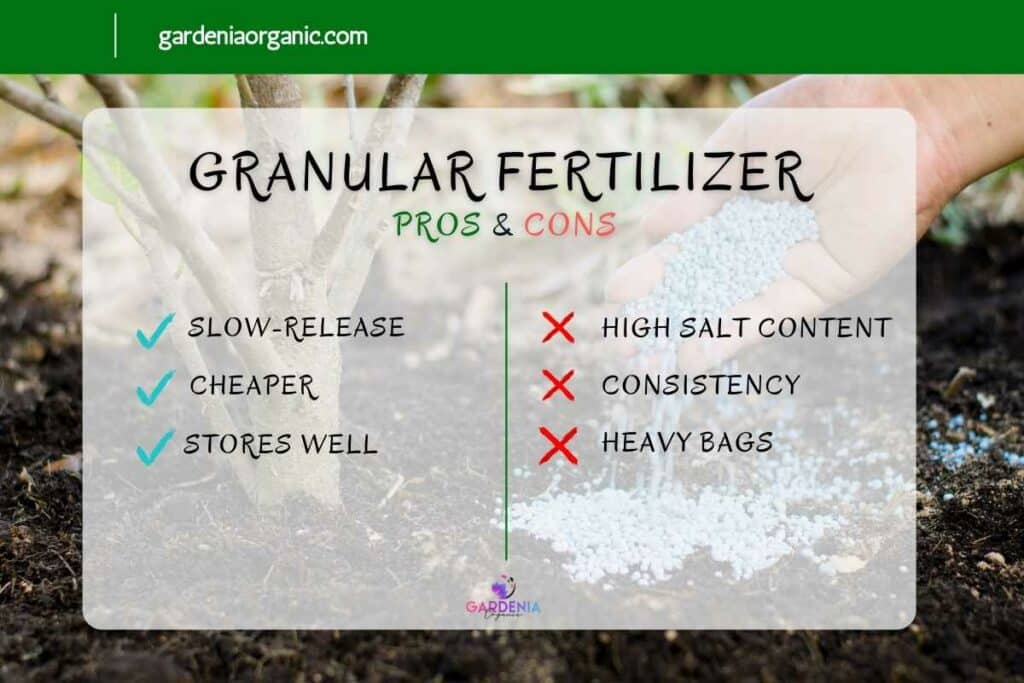
While beer does contain small amounts of nitrogen, phosphorus, and potassium, the levels are not high enough to make a significant difference in plant growth.
As Mentioned – Using beer as a fertilizer is more likely to do more harm than good, as the alcohol content can damage the plants.
3. The Cost
Another reason why you shouldn’t use beer to fertilize your plants is the cost.
Beer is not a cheap beverage; it would be very costly to use it regularly as fertilizer.
There are much more affordable and more practical ways to fertilize your plants, such as using commercial fertilizers or compost.
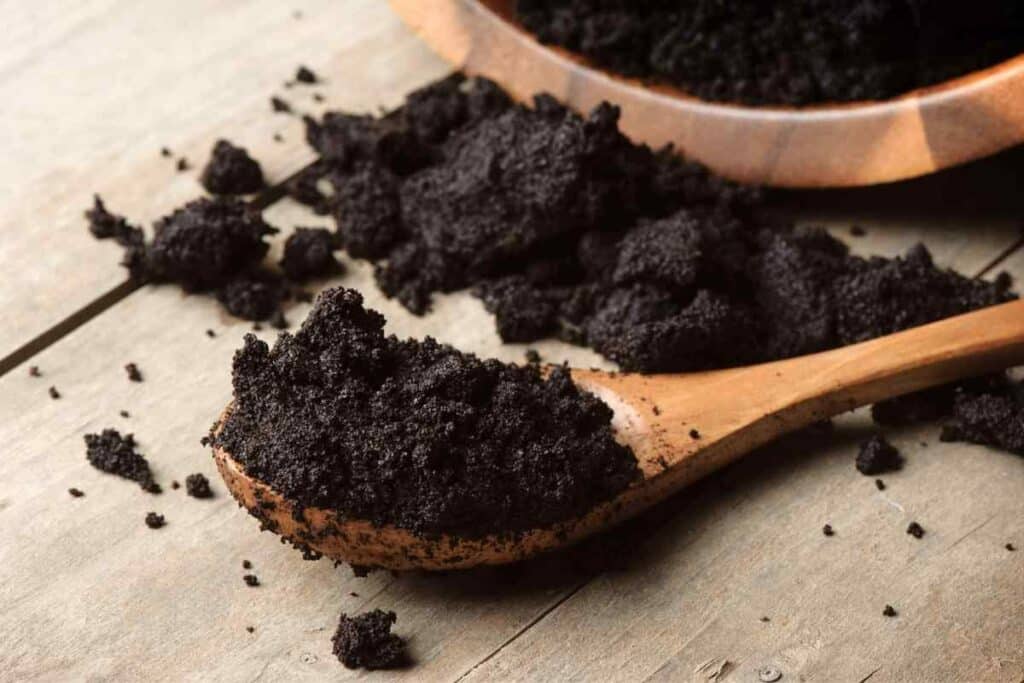
If you’re looking for a natural way to fertilize your plants, consider using coffee grounds or banana peels instead of beer.
With the average cost of a 6-pack of beer being $8, it’s simply not worth using beer as a fertilizer.
You’re better off spending your cash on a commercial fertilizer that will provide nutrients to your plants.
4. The Smell
Another potential downside of using beer to fertilize your plants is the smell.
Beer can have a strong and unpleasant smell, especially when it’s first poured.
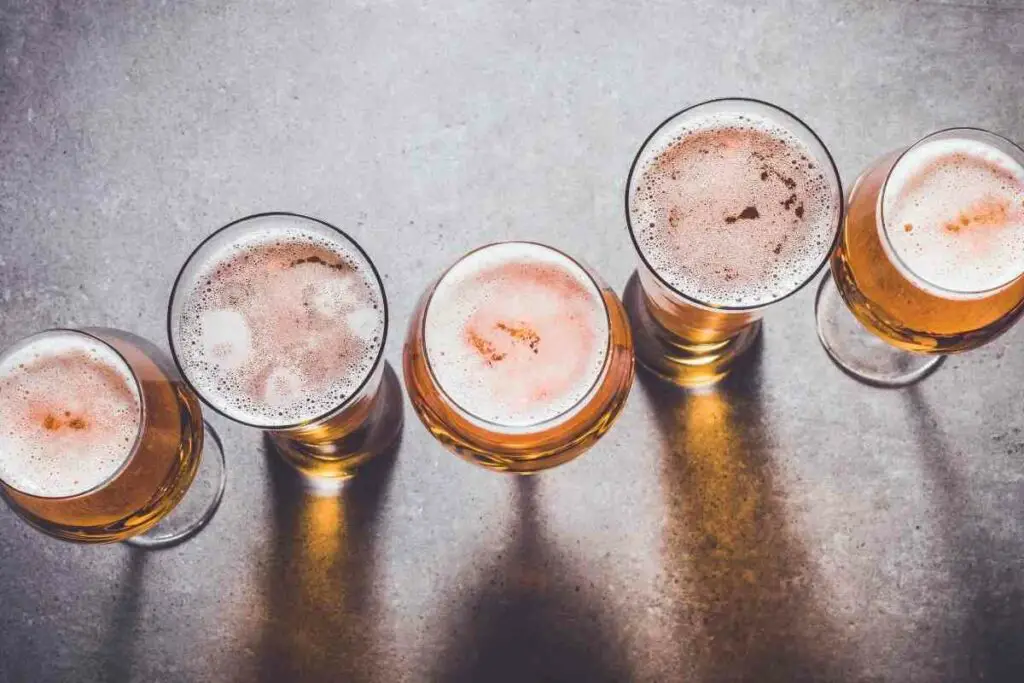
While the smell of beer may not be a big deal to some people, it can be quite off-putting for others.
If you’re sensitive to smells, probably you should avoid using beer as a fertilizer.
5. The Risk of Fungal Diseases
As mentioned earlier, beer contains yeast which can be harmful to plants.
When used as a fertilizer, beer can increase the risk of fungal diseases such as powdery mildew and root rot.
Diseases like these can cause severe damage to your plants, so it’s best to avoid using beer as a fertilizer.
Great Alternative – If you’re looking for a natural way to fertilize your plants, consider using coffee grounds or banana peels instead.
How You Can Use Beer to Help Your Plants
While you shouldn’t use beer as a fertilizer, there are some ways that you can use it to help your plants.
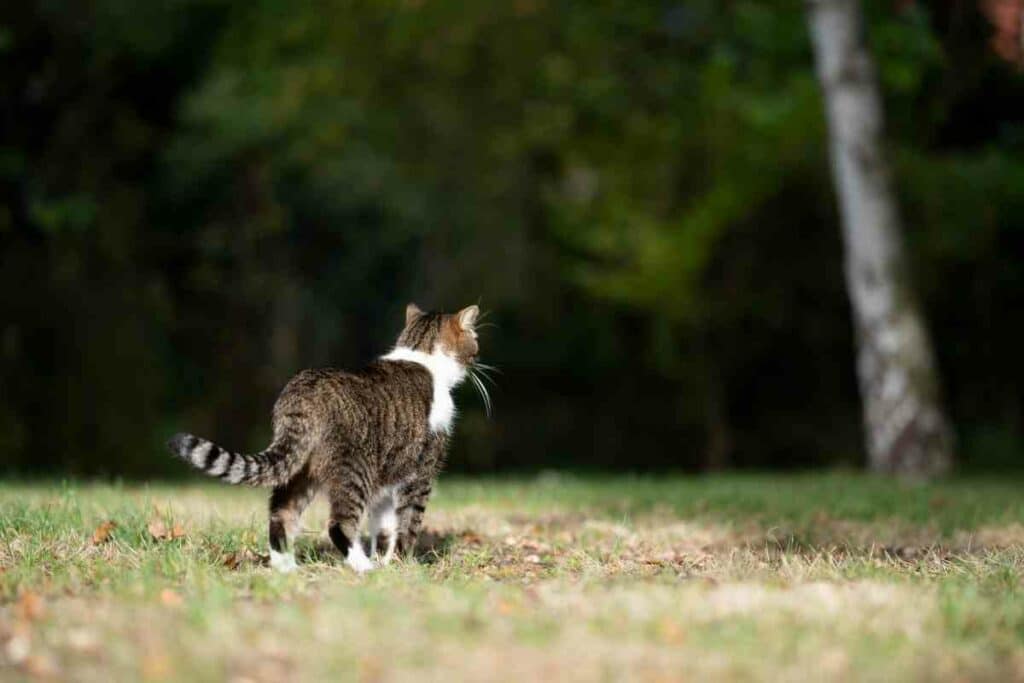
For example, you can use beer to:
- Trap Slugs: Unwanted pests are never fun, especially when it comes to your plants. If you’re struggling with slugs, consider using beer as a trap. Simply bury a small container in the soil and fill it with beer. The slugs will be attracted to the beer and crawl into the container, where they will drown.
- Keep Cats Away: If you have a problem with neighborhood cats using your garden as a bathroom, consider using beer to keep them away. Pour some beer into a bowl and position it in your garden. The cats will be deterred by the smell and stay away from your plants.
- Fertilize Your Lawn: Just because you shouldn’t use beer as a fertilizer for your plants doesn’t mean you can’t use it to fertilize your lawn. Stale beer mixed with ammonia, molasses, lawn food, and organic dishwashing soap makes an excellent lawn fertilizer. Simply mix all of the ingredients and apply them to your lawn.
The Bottom Line
So, is beer good for plants?
No, it’s not.
While beer may seem good for plants, it’s likely to do more harm than good.
If you’re looking for a natural way to fertilize your plants, consider using coffee grounds or banana peels instead.
